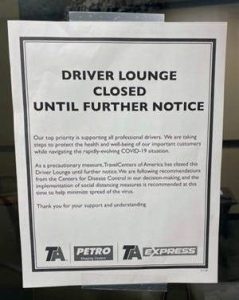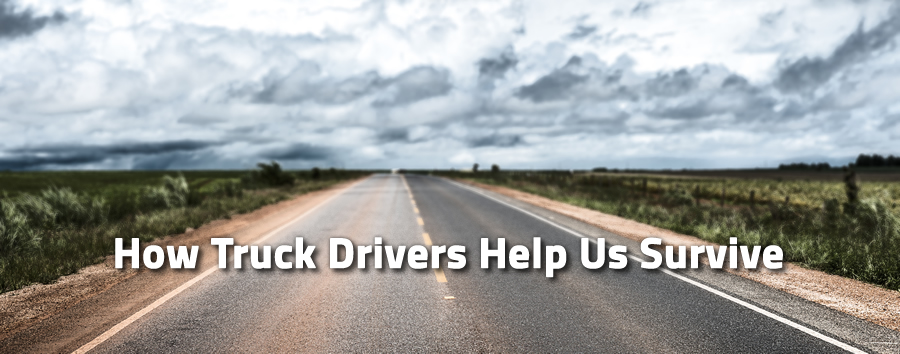WHAT DRIVERS NEED TO KNOW TO KEEP ROLLING.
The country has come to a grinding halt when it comes to social interaction. Citizens have been sheltering in place to avoid crowds in churches, schools, stores, etc. Employers have sent much of their workforce to their homes to conduct business. Self-isolation has become the nation’s hot topic.
Moving freight is still in high demand, though, due to the short supply in grocery stores plus an increase in E-commerce activity. We are a nation dependent on truck drivers. What is a trucker to do when they aren’t able to self-quarantine?
For them, the answer is simple: Keep rolling.
In the beginning of their career, some truck drivers are enticed by the idea of getting paid to tour the country. They love the idea of watching the sun setting over an open highway every night. Or carefully navigating the winding roads of a beautiful mountain. Or breathing in the fresh coastal air after driving all night. While they get to experience all manner of landscapes and cultures, being an over the road truck driver comes with many challenges.
The general public looks forward to the end of the workday. You can go home, relax, cook dinner, play with your kids. All these activities can help you distance yourself from the stresses of work. Let’s say one day, while relaxing at home, you get a fantastic job offer. More money, solid company, better benefits. What is there to think about?
For an over the road truck driver, the decision cannot be made lightly. Most importantly, he could be thousands of miles away from his home. It could take more than a week to reach the home terminal. So, until he gets routed back to the terminal, he is stranded with indecision.
The same is true if a trucker gets sick over the road.
He could be thousands of miles away from his primary care doctor. Thousands of miles away from his family. For most truck drivers, this happens all too often. Their only hope is to ask their dispatcher for a break and crawl into the sleeper until it passes.
And during that time, most will not earn sick pay. A professional driver’s paycheck usually comes from mileage driven. So, if the wheels aren’t turning, they aren’t earning. If a driver becomes infected with Coronavirus, he could have to make a tough decision between his health and his paycheck.
Exposure risks
Truck drivers are in contact with all manner of the public on their way from the shipper to the receiver. Every facility they utilize is publicly accessed. In and out of truck stops, fast food restaurants, and rest areas, there are many opportunities for a truck driver to become infected.
The roads they choose to travel can increase their risk factor as well. A driver routed through a major metropolitan area could be at a higher risk depending on the number of occurrences in each city he travels through. Some drivers may travel through several major cities in a single day. Drivers must remain diligent in their hygiene habits to stay healthy. America stops if truckers can’t go.
A Trucker’s Responsibility? Transmission.
Because there is a high exposure risk for drivers, there is also a high transmission risk. Just as drivers could contract the virus from all the places listed before, a driver could also spread the virus to those places.
Be proactive. Wash your hands, clean your cab, and know the symptoms in case you need medical attention. Keep in mind that even though there are many exposure risks for drivers, you can take these preventative measures to keep yourself healthy.
Everything is confusing right now. You might find it difficult to quarantine in your cabin or find a place to park while others do the same. Truck stops are essential for truck drivers, not only for food and supplies, but also for showers, sleep, truck repairs, etc.
The best plan is a pre-plan. Check out these links to find updates from big truck stops. Always know where you’re going before you start rolling.
- Updates from Love’s Travel Centers
- Updates from Pilot Flying J
- Updates from TravelCenters of America/Petro











